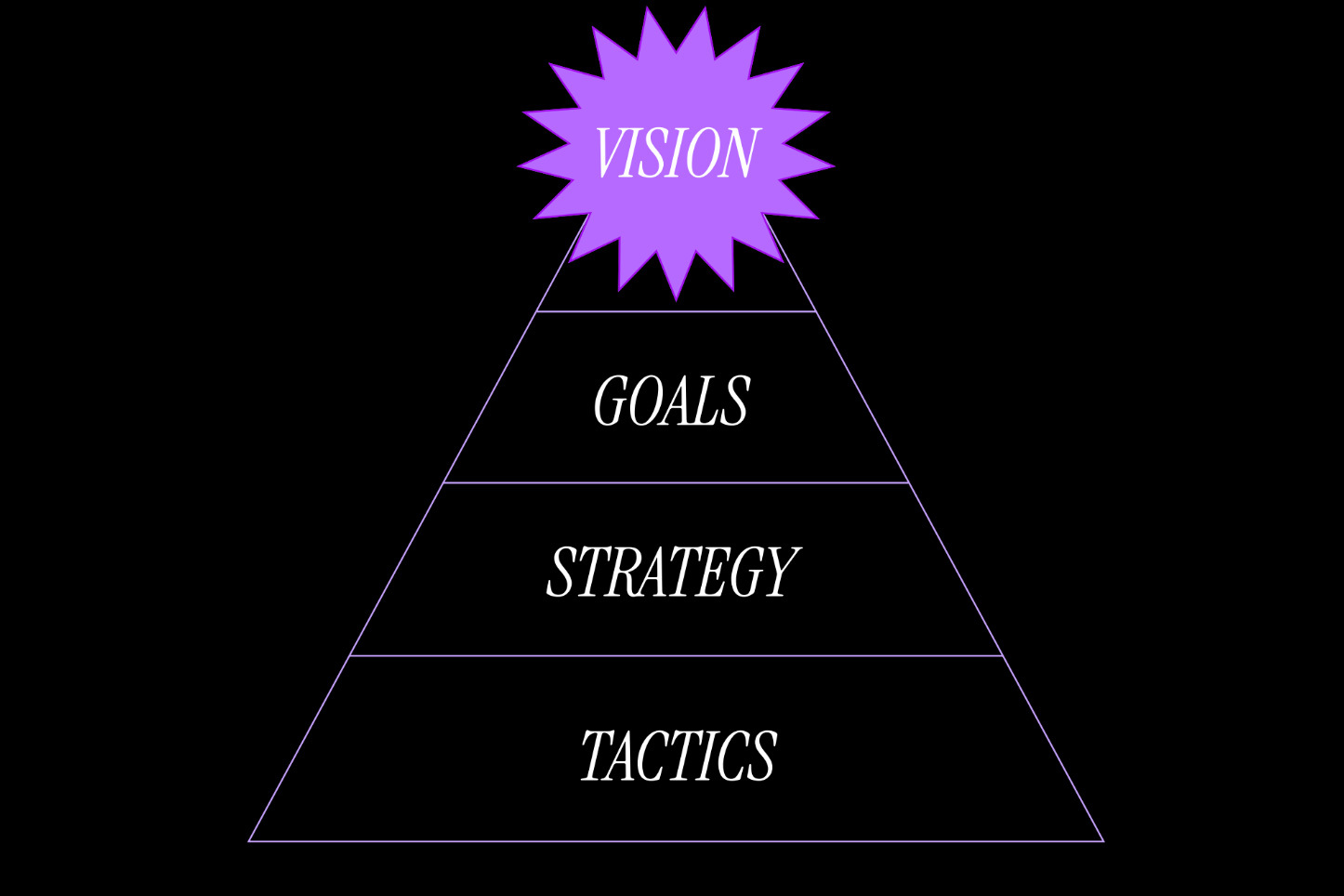


of the United Kingdom’s capitol city.
Let me get your gears turning:
The Problem: digital burnout.
The Solution: capitalism.
It sounds absolutely absurd, doesn’t it? But maybe it isn’t so absurd after all? In my article on LinkedIn yesterday I unpacked how we have an emerging narrative on our show (one we didn’t knowingly craft) of people sensing and responding to digital burnout.
Digital burnout -- the oversharing and over-consumption of digital content -- leads to the feeling of worry or stress. Digital devices and connectedness play a role in keeping us glued to the sources of this stress. The smartphone and the emergence of social networks were both products of American entrepreneurship and venture capital investment - so it stands to reason that if we got ourselves into this predicament we can also create tools to get ourselves out.
And so is the thesis for my article, that brands have a role to play in helping us unplug from the Attention Economy. Brands like Pinterest are encouraging you to find things you love on their platform and then go outside into the real world and go do those things. Brands like Equal Parts which teach you how to cook a meal with your friends and to do so with beautifully-designed cookware, professional assistance via text message, and a community of people sharing their experiences. Brand Analysts like Emily Singer who have done the research on what modern consumers care about and how they want to engage companies who align with their values.
This is the emerging story on Future Commerce: digital burnout is a problem to be solved. Founders sense the problem and are creating brands with purpose as a response. Our thesis: commerce is the global connector that brings together disparate groups of people, while entrepreneurship is the tool for creating upward mobility amongst the working class. Therefore retail entrepreneurship is how we solve problems as a society.
Therefore, the solution to digital burnout? Capitalism.
Let me get your gears turning:
The Problem: digital burnout.
The Solution: capitalism.
It sounds absolutely absurd, doesn’t it? But maybe it isn’t so absurd after all? In my article on LinkedIn yesterday I unpacked how we have an emerging narrative on our show (one we didn’t knowingly craft) of people sensing and responding to digital burnout.
Digital burnout -- the oversharing and over-consumption of digital content -- leads to the feeling of worry or stress. Digital devices and connectedness play a role in keeping us glued to the sources of this stress. The smartphone and the emergence of social networks were both products of American entrepreneurship and venture capital investment - so it stands to reason that if we got ourselves into this predicament we can also create tools to get ourselves out.
And so is the thesis for my article, that brands have a role to play in helping us unplug from the Attention Economy. Brands like Pinterest are encouraging you to find things you love on their platform and then go outside into the real world and go do those things. Brands like Equal Parts which teach you how to cook a meal with your friends and to do so with beautifully-designed cookware, professional assistance via text message, and a community of people sharing their experiences. Brand Analysts like Emily Singer who have done the research on what modern consumers care about and how they want to engage companies who align with their values.
This is the emerging story on Future Commerce: digital burnout is a problem to be solved. Founders sense the problem and are creating brands with purpose as a response. Our thesis: commerce is the global connector that brings together disparate groups of people, while entrepreneurship is the tool for creating upward mobility amongst the working class. Therefore retail entrepreneurship is how we solve problems as a society.
Therefore, the solution to digital burnout? Capitalism.
Let me get your gears turning:
The Problem: digital burnout.
The Solution: capitalism.
It sounds absolutely absurd, doesn’t it? But maybe it isn’t so absurd after all? In my article on LinkedIn yesterday I unpacked how we have an emerging narrative on our show (one we didn’t knowingly craft) of people sensing and responding to digital burnout.
Digital burnout -- the oversharing and over-consumption of digital content -- leads to the feeling of worry or stress. Digital devices and connectedness play a role in keeping us glued to the sources of this stress. The smartphone and the emergence of social networks were both products of American entrepreneurship and venture capital investment - so it stands to reason that if we got ourselves into this predicament we can also create tools to get ourselves out.
And so is the thesis for my article, that brands have a role to play in helping us unplug from the Attention Economy. Brands like Pinterest are encouraging you to find things you love on their platform and then go outside into the real world and go do those things. Brands like Equal Parts which teach you how to cook a meal with your friends and to do so with beautifully-designed cookware, professional assistance via text message, and a community of people sharing their experiences. Brand Analysts like Emily Singer who have done the research on what modern consumers care about and how they want to engage companies who align with their values.
This is the emerging story on Future Commerce: digital burnout is a problem to be solved. Founders sense the problem and are creating brands with purpose as a response. Our thesis: commerce is the global connector that brings together disparate groups of people, while entrepreneurship is the tool for creating upward mobility amongst the working class. Therefore retail entrepreneurship is how we solve problems as a society.
Therefore, the solution to digital burnout? Capitalism.
Let me get your gears turning:
The Problem: digital burnout.
The Solution: capitalism.
It sounds absolutely absurd, doesn’t it? But maybe it isn’t so absurd after all? In my article on LinkedIn yesterday I unpacked how we have an emerging narrative on our show (one we didn’t knowingly craft) of people sensing and responding to digital burnout.
Digital burnout -- the oversharing and over-consumption of digital content -- leads to the feeling of worry or stress. Digital devices and connectedness play a role in keeping us glued to the sources of this stress. The smartphone and the emergence of social networks were both products of American entrepreneurship and venture capital investment - so it stands to reason that if we got ourselves into this predicament we can also create tools to get ourselves out.
And so is the thesis for my article, that brands have a role to play in helping us unplug from the Attention Economy. Brands like Pinterest are encouraging you to find things you love on their platform and then go outside into the real world and go do those things. Brands like Equal Parts which teach you how to cook a meal with your friends and to do so with beautifully-designed cookware, professional assistance via text message, and a community of people sharing their experiences. Brand Analysts like Emily Singer who have done the research on what modern consumers care about and how they want to engage companies who align with their values.
This is the emerging story on Future Commerce: digital burnout is a problem to be solved. Founders sense the problem and are creating brands with purpose as a response. Our thesis: commerce is the global connector that brings together disparate groups of people, while entrepreneurship is the tool for creating upward mobility amongst the working class. Therefore retail entrepreneurship is how we solve problems as a society.
Therefore, the solution to digital burnout? Capitalism.
Let me get your gears turning:
The Problem: digital burnout.
The Solution: capitalism.
It sounds absolutely absurd, doesn’t it? But maybe it isn’t so absurd after all? In my article on LinkedIn yesterday I unpacked how we have an emerging narrative on our show (one we didn’t knowingly craft) of people sensing and responding to digital burnout.
Digital burnout -- the oversharing and over-consumption of digital content -- leads to the feeling of worry or stress. Digital devices and connectedness play a role in keeping us glued to the sources of this stress. The smartphone and the emergence of social networks were both products of American entrepreneurship and venture capital investment - so it stands to reason that if we got ourselves into this predicament we can also create tools to get ourselves out.
And so is the thesis for my article, that brands have a role to play in helping us unplug from the Attention Economy. Brands like Pinterest are encouraging you to find things you love on their platform and then go outside into the real world and go do those things. Brands like Equal Parts which teach you how to cook a meal with your friends and to do so with beautifully-designed cookware, professional assistance via text message, and a community of people sharing their experiences. Brand Analysts like Emily Singer who have done the research on what modern consumers care about and how they want to engage companies who align with their values.
This is the emerging story on Future Commerce: digital burnout is a problem to be solved. Founders sense the problem and are creating brands with purpose as a response. Our thesis: commerce is the global connector that brings together disparate groups of people, while entrepreneurship is the tool for creating upward mobility amongst the working class. Therefore retail entrepreneurship is how we solve problems as a society.
Therefore, the solution to digital burnout? Capitalism.
Continue Reading...
Those things we shouldn’t say out loud? We say them on the private feed. Bi-weekly “after dark” podcasts and a members-only newsletter, just for subscribers.
Our research reports combine visionary thinking with data-backed findings from our own advisory panel, made up of leaders at brands you know and trust.
Upskill, cross-skill, and future-proof your teams with Future Commerce Learning, the leading digital eCommerce learning platform, created by professional educators.















